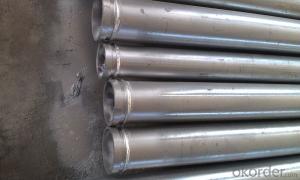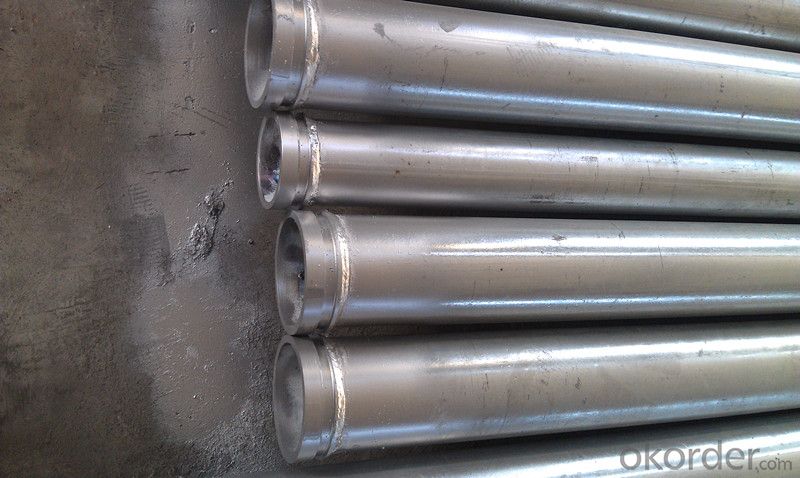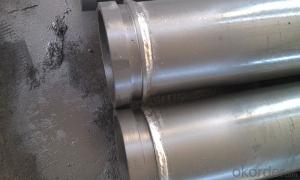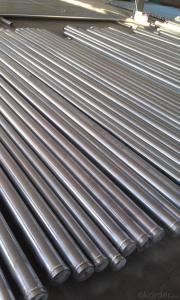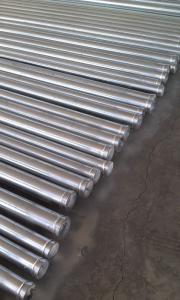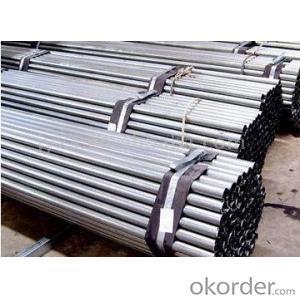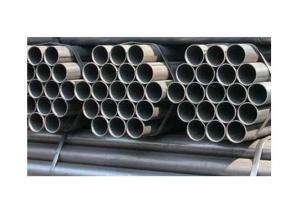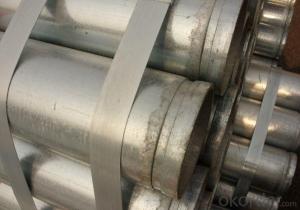galvenized Victaulic Shouldered grooved Pipe
- Loading Port:
- China Main Port
- Payment Terms:
- TT OR LC
- Min Order Qty:
- -
- Supply Capability:
- -
OKorder Service Pledge
OKorder Financial Service
You Might Also Like
Product Name | Shouldered Grooved pipe |
Outside Diameter(mm) | 60.3mm-425mm |
Wall thickness(mm) | 2mm-20mm |
Certification | FM/UL; SGS/BV |
Standard | 1.ASTM A106/A53 GR.A; ASTM A106/A53 GR.B; ASTM A53/A106 GR.C 2.APL 5L GR.B, API 5CT J55, K55, N80 3.ASTM, BS,DIN, EN |
Grade | A, B, C, ST33, ST37, ST35.8, ST45-8, ST45-4, ST52 |
Place of Origin | Hebei Cina |
Face finished | 1.Manual polished 2.mechanical polished 3.black paint on the face 4.Shoulder Grooved on both ends 5.Galvanized or Colour Painting |
Export | Europe, South America, the Middle East, Africa, Asia and other countries and regions, well received by consumers! |
Process Method | 1.Cold Drawn 2.Cold rolled 3.Hot rolled 4. Hot expanded |
Application | Tube with hollow cross-section, a large number of channels for transporting fluids, such as the transportation of oil, natural gas, gas, water and some solid materials, pipes, etc.. |
Package | 1.Inner Packing:Caps at both ends, steel strong trips on every bundle 2.Outer Packing:Standard export package or as per clients' requirements |
- Q: Can steel pipes be used for underground sewerage systems?
- Indeed, underground sewerage systems can make use of steel pipes. These pipes possess remarkable strength and durability, rendering them suitable for the transportation of sewage beneath the surface. Their resistance to corrosion is high, allowing them to withstand the pressure and weight of the soil above. Moreover, steel pipes boast an extended lifespan and exhibit resilience against environmental factors like moisture, chemicals, and temperature variations. Furthermore, the ease of welding steel pipes makes the process of installation and repairs more convenient. Nevertheless, it is crucial to ensure that these steel pipes are adequately coated or lined to prevent corrosion and comply with local regulations and standards pertaining to underground sewerage systems.
- Q: Can steel pipes be used for underground fire sprinkler systems?
- Yes, steel pipes can be used for underground fire sprinkler systems. Steel pipes are commonly used for their strength and durability, making them suitable for underground installations. However, it is important to ensure that the steel pipes are properly coated or protected against corrosion to maintain their integrity over time.
- Q: How are steel pipes protected during transportation and storage?
- Steel pipes are typically protected during transportation and storage through various measures. These include using protective coatings like oil or paint to prevent corrosion, using proper packaging materials such as plastic caps or wrapping, securing them with straps or bands to prevent movement and damage, and storing them in covered or enclosed areas to shield them from environmental elements like moisture, sunlight, or extreme temperatures.
- Q: What are the different methods of joining steel pipes for steam applications?
- The different methods of joining steel pipes for steam applications include welding, threading, flanging, and grooving. Welding involves fusing the pipes together using heat, while threading involves screwing the pipes together using threaded fittings. Flanging involves connecting the pipes by creating a flared or flat surface at the end of each pipe and using bolts to secure them together. Grooving involves creating a groove on the end of each pipe and using a coupling to connect them.
- Q: What are the different methods of non-destructive testing for steel pipes?
- The different methods of non-destructive testing for steel pipes include visual inspection, ultrasonic testing, magnetic particle testing, liquid penetrant testing, and radiographic testing. These methods are used to detect defects or abnormalities in the pipes without causing any damage. Visual inspection involves a thorough visual examination of the pipe's surface. Ultrasonic testing uses high-frequency sound waves to identify internal flaws or thickness measurements. Magnetic particle testing detects surface and near-surface defects by applying a magnetic field and inspecting for magnetic particles. Liquid penetrant testing involves applying a liquid dye to the surface and inspecting for any visible indications of defects. Radiographic testing uses X-rays or gamma rays to capture images that reveal internal defects or flaws in the steel pipes.
- Q: Why seamless steel pipe called seamless steel pipe?
- Seamless steel pipe is a hollow section, without the joint round, square, rectangular steel. Seamless steel tubes are made of ingots or billets made by piercing and are then made by hot rolling, cold rolling or cold casting. Seamless steel pipe with a hollow section, as pipe conveying fluid, compared withsteel and roundsteelinsolid, flexural torsional strength in the same time, the weight is light, is a kind of economic section steel, widely used in the manufacture of structural parts and mechanical parts, such as the oil pipe, automobile transmission shaft, bike frame and construction using steel scaffolding.
- Q: Can steel pipes be used for underground air supply systems?
- Yes, steel pipes can be used for underground air supply systems. Steel pipes are commonly used for underground applications due to their durability, strength, and resistance to corrosion. They can effectively transport compressed air, making them suitable for underground air supply systems.
- Q: Why should the weak electricity be pre buried with galvanized steel pipe?
- Galvanized steel is widely used in construction, machinery, coal, chemical industry, railway vehicles, automobile industry, highway, bridge, container, sports facilities, agricultural machinery, petroleum machinery, prospecting machinery and other manufacturing industries.
- Q: Can steel pipes be used for chimney flues?
- Yes, steel pipes can be used for chimney flues. Steel pipes are commonly used for chimney flues due to their durability, heat resistance, and ability to withstand high temperatures. They provide a reliable and efficient solution for venting smoke and gases from a fireplace or stove.
- Q: How are steel pipes used in the construction of oil and gas pipelines?
- Steel pipes are commonly used in the construction of oil and gas pipelines due to their strength, durability, and resistance to corrosion. These pipes are primarily used for transporting oil and gas over long distances, ensuring a reliable and efficient flow of these resources. The steel pipes are welded together to form a continuous pipeline that can withstand high pressure and extreme weather conditions. Additionally, their smooth interior surface minimizes friction and allows for efficient transportation of oil and gas.
Send your message to us
galvenized Victaulic Shouldered grooved Pipe
- Loading Port:
- China Main Port
- Payment Terms:
- TT OR LC
- Min Order Qty:
- -
- Supply Capability:
- -
OKorder Service Pledge
OKorder Financial Service
Similar products
Hot products
Hot Searches
Related keywords
